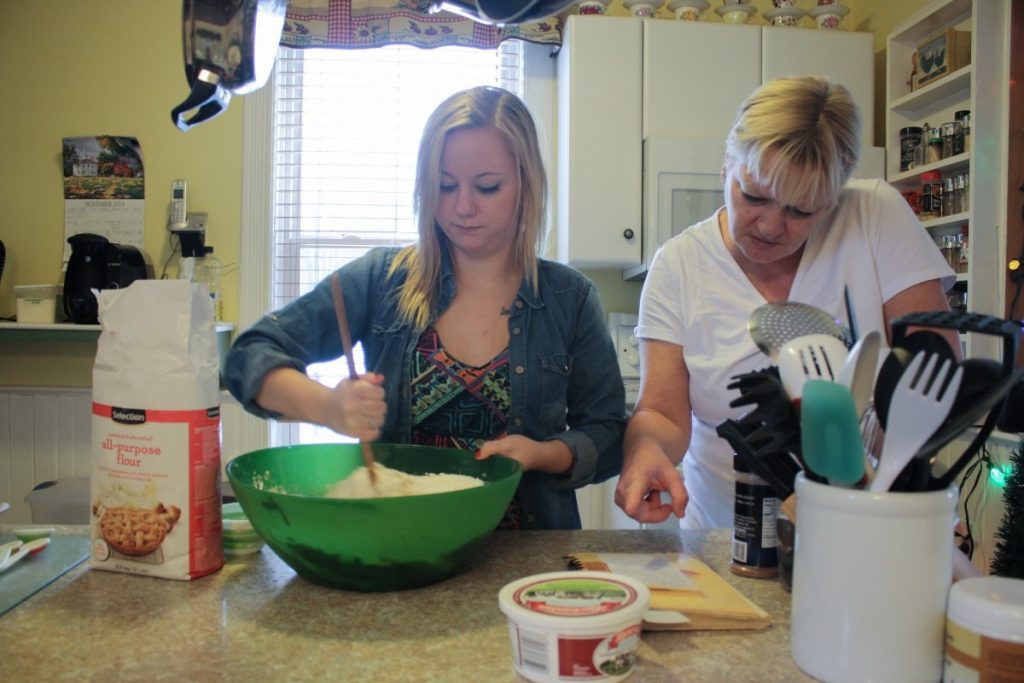
We hear it time after time, day after day from our friends and colleagues who have college-age kids. They complain that their kids aren’t independent enough. They worry that they may need to borrow money. They bemoan their lack of life skills. They are infinitely proud of their kids’ achievements in the field of education and their extracurricular activities but wish that they had more life skills. Is this fair?
The jury’s out. A big part of life experience is the fact that we pick it up slowly and gradually as life forces us into situations where we’re forced to use our creative problem-solving abilities (or just Google it– which is a conversation for another time). We, as a society, place a lot of pressure on teens right at a time where their lives are in quite a bit of personal turmoil and disruption thanks to the progression from high school to college or work and the various physical, psychological and social transformations that come between childhood and adulthood.

One could make a perfectly compelling argument that today’s kids have enough on their plate, between navigating the path to adulthood, getting the best they can out of their education and preparing themselves for a competitive and capricious job market. However, in order to truly excel, our kids need to be prepared to take a proactive approach to learning the skills that they’ll need for a healthy, happy and independent life.
Staring down tomorrow’s challenges today
Even if your son or daughter is not yet living independently, it’s a good idea to start to prepare them for tomorrow’s challenges today. Teaching them the following skills will help them immeasurably when they fly the nest.
Not only will they be able to live more independently both personally and financially, they will be able to enter the job market with transferable skills which will give them the leading edge over competing candidates. Plus, the time spent together learning these skills may even prove some useful bonding time between you. Here are some important life skills we should all be teaching our kids…
CPR
CPR is among the most important skills a person can learn. Not only does CPR training look great on a resume and demonstrate a lust for independent learning outside of the school or workplace, it empowers your kids with the knowledge that they could one day save someone’s life.
CPR certification classes are affordable and easy to come by. You can even take an online class for free, with a free wallet card to prove it. CPR is an extremely important and llife-savingskill which your kids will be able to take with them wherever they go for the rest of their lives.
First aid skills
CPR isn’t the only first aid skill of value to kids on the cusp of independence and adulthood. General first aid skills not only make your son or daughter more employable, they provide an extremely useful skill which they will inevitably need to use at some point. Even something as rudimentary as teaching them how to clean and dress a wound can be invaluable.
Health and general care
We all want the peace of mind that our kids are going to be able to take care of their own health when they fly the nest. This means teaching them about common health complaints and how to identify them.
Knowing when to call the doctor and when to self medicate with over the counter medication, knowing about their health insurance options and how they will benefit from the right policy (unless you’re lucky enough to live somewhere where healthcare is free for all), and taking care of the health by controlling their environment and diet. Which brings us to…

Healthy cooking and eating
There’s no greater skill you can pass on to your kids than the ability to cook healthy and nutritious meals. Without it, your kids will likely lean heavily on restaurants, takeout and fast food. They’ll come to regard cooking as a chore and find themselves spending a fortune on eating out week after week. This is not only damaging to their finances, it won’t do their health or appearance any favors either.
As a nation, we spend on average over $3,000 a year on eating out. While the odd meal out is absolutely fine as a treat or to commemorate a special occasion, if we’re not careful we can normalize this behavior and encourage our kids to favor the restaurant or take away over a nutritious home cooked meal.
Not only does home cooking save a fortune, it allows one far greater opportunity to take one’s health and nutrition into their own hands. Encourage your kids to cook everything from scratch and shy away from processed, pre-packaged ready meals which are loaded with hidden fats, sugars and sodium. A diet that’s chock full of ready meals may be cheaper than one full of fast food, but it can be almost as nutritionally damaging.
If you take some time to cook with your kids (it’s never too early to start), something wonderful happens. They stop thinking of cooking as a chore or a waste of time, they come to enjoy the process, finding it therapeutic and reminding them of treasured memories with you. Not only will your kids be able to better manage their own nutrition, you’ll hand them the keys to a kingdom of delicious and nourishing home cooked meals!
Money management
In a challenging economy, today’s kids need every inch of inside track they can get in order to become financially successful and responsible adults tomorrow. There are many ways in which you can teach them the value of money and how they can manage it effectively. A big part of it starts early in childhood as you teach them the value of their allowance and the difference between saving it up for something they really want and blowing it all on candy just because they can. Of course, while an understanding of saving is advantageous, it’s just the tip of the iceberg.
Youngsters need to learn the value of budgeting and accounting for every penny that goes in and out of their bank account. Give them an easy to use budgeting template and encourage them to log all of their expenditure in it from the extra money they make working weekends to the popcorn they buy at the movies.
They also need to learn how to manage their money to ensure that there’s sufficient money in their bank account to cover monthly bills and direct debits. They need to understand the importance of saving money by regularly switching service providers for their broadband, phone and utilities as well as how to shave a little off the total of their grocery store shop every week.
Even ensuring that you never shop while hungry so that you’re less swayed by the allure of impulse purchases like processed snack foods can be invaluable in helping your teen to manage their money.
Managing their emotions
As the powder keg of hormones that they are, many teens struggle to get a handle on their emotions. While this is understandable, they need to realize that an emotional outburst may be acceptable in the home, but it’s certainly not acceptable at work or in a social situation. They need to be taught stress and anger management techniques as well as ways to channel their negative emotions like anger, frustration and anxiety productively into (for example) work or exercise.
Of course education is extremely important, but it’s just one part of a rich tapestry of life skills that your son or daughter will need to develop to face the challenges of the 2020s.


